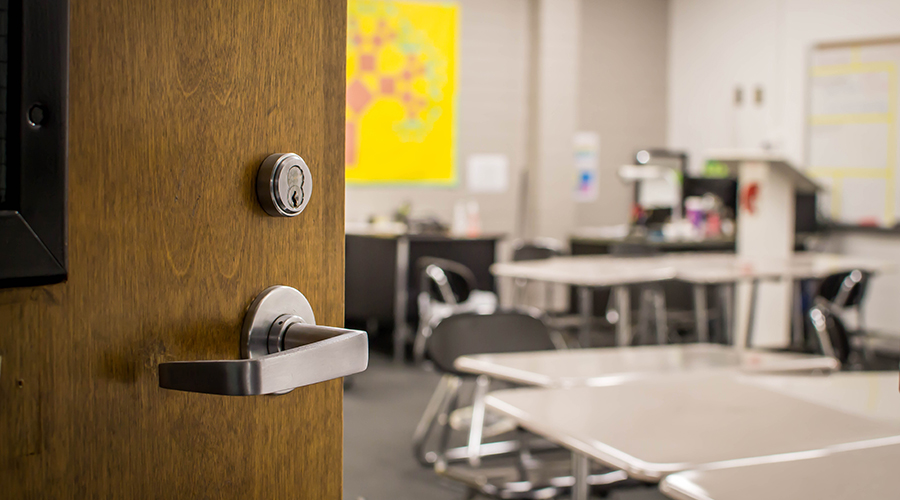Women in FM: Navigating and Overcoming Bias within Facilities Management
Brazilian Jiu-Jitsu and facilities management have more in common than what meets the eye.
By Maria Ruiz, Contributing Writer
I’ll never forget the day a new client looked past me and asked my male junior technician for final approval on their building systems assessment. Despite my role, assumptions about who “looks the part” persist in our industry. Fortunately, I had the perfect training for these situations—and it didn’t come from a facilities management course.
Nine months ago, I took the leap and walked into my first Brazilian Jiu-Jitsu (BJJ) class, experiencing an overwhelming sense of déjà vu. Just as in my professional life, I was the only woman in a room full of men, all of whom seemed to question whether I belonged there. Little did I know that the techniques I would learn on those mats would provide me with a framework for navigating bias in my facilities management career.
On the BJJ mats, your technique speaks for itself. During my first few months of training, male partners would often go easy on me—until I caught them in a submission they weren’t expecting. The look of surprise, followed by newfound respect, mirrored exactly what happens in facilities management when I troubleshoot a complex mechanical issue that others couldn’t resolve. In both fields, demonstrated skill changes perceptions faster than words ever could.
BJJ teaches leverage over brute force—finding the right angle to neutralize a stronger opponent. I’ve applied the same principle when facing bias professionally. When a vendor persistently directed technical questions to my male assistant despite my attempts to engage, I didn’t react with frustration. Instead, I redirected the conversation by saying, “Let’s focus on the installation approach using the specifications I’ve prepared.” This subtle shift, like a perfectly timed sweep on the mats, changed the dynamic instantly.
My BJJ coach often says, “Position before submission,” meaning you must establish proper positioning before attempting to finish a move. This philosophy translates perfectly to facilities management. When joining a new project team where I sense skepticism about my expertise, I focus first on establishing my position through thorough preparation and precise technical communication. Once I’ve built trust, I move toward leading more complex initiatives.
One of the most valuable lessons from BJJ is resilience. Getting tapped out (defeated) happens to everyone, regardless of rank or experience. What matters is how quickly you recover and apply what you’ve learned. When a male colleague dismissed my concerns about an outdated work order help desk for my facilities team—only for the subsequent failures to prove my concerns valid—I didn’t gloat. Instead, I approached the situation as a learning opportunity, suggesting modifications without assigning blame. This resilience-based approach transformed a potentially adversarial situation into a collaborative one.
Interestingly, both BJJ and facilities management follow similar progression patterns. As a white belt or a new manager, you're hyper-aware of being an outsider, and every interaction feels like a test. By the blue belt stage—or after a few years in management—you’ve proven your baseline competence but still need to refine your unique approach. By the time you reach the purple belt level or senior management, something remarkable happens - gender becomes irrelevant as skill and decision-making take center stage.
The most rewarding parallel between these two worlds is the transition from outsider to insider. After consistent training, fellow BJJ practitioners stopped seeing me as “the woman who trains” and simply as “another training partner.” Similarly, after repeatedly demonstrating my technical expertise in facilities management, I eventually became “the facilities manager” rather than “the female facilities manager.” In both settings, initial skepticism faded as mutual respect grew.
I’ve found that my BJJ training gives me an unexpected advantage in high-pressure facilities situations. During a major HVAC system failure at the peak of summer heat, tensions among stakeholders ran high. The same calm I maintain when caught in a difficult position on the mats helped me methodically identify the failure points and coordinate emergency repairs without getting rattled.
For women navigating bias in technical fields, I always recommend finding a challenging environment where they can develop resilience and confidence outside of work. The skills transfer more readily than expected.
As I continue advancing both my BJJ rank and my facilities management career, I remain grateful for the parallel lessons they’ve taught me. In both arenas, respect isn’t automatically given—it’s earned through consistent demonstration of skill, knowledge, and composure under pressure. And while being the only woman in the room—or on the mat—presents unique challenges, it also offers the opportunity to reshape perceptions in lasting ways.
Maria Ruiz is a Facilities Operations Manager at UNICEF USA with 15+ years of cross-sector expertise. Overseeing multiple national offices, she applies Lean Six Sigma methodologies to create sustainable, efficient workspaces supporting humanitarian missions. Her writing champions women in facilities management by blending technical knowledge with practical insights that empower professionals in this traditionally male-dominated field. Committed to work-life balance, Maria recharges by training in Brazilian Jiu-Jitsu with her son—finding that the discipline and focus required on the mat enhances her leadership approach in facilities management.
Related Topics:












